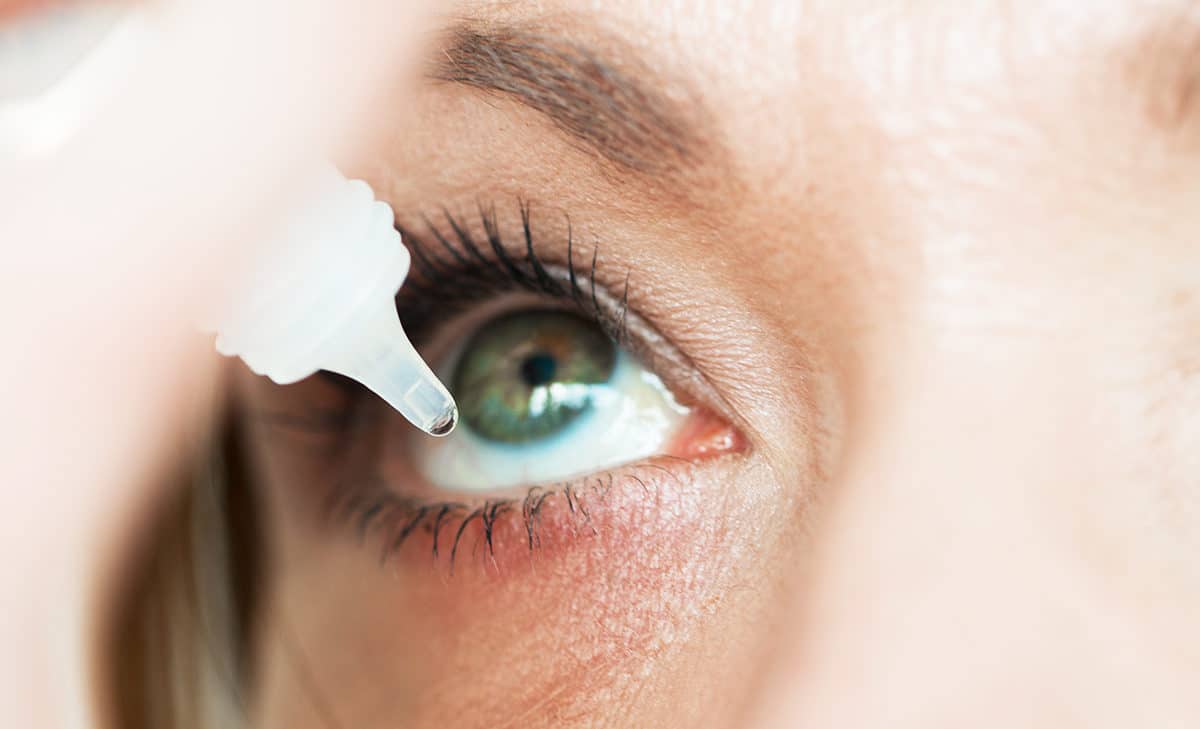Table of Contents
Dry Eye Causes
Dry eyes are the result of a lack of adequate tears or excessive evaporation of tears. Your tears are made up of water, fatty oils, and mucus that keep the surface of the eye moist and clear and help prevent painful eyes and eye infections.
Dry eyes can be caused by a number of factors, including:
- Aging.
- Certain medical conditions like diabetes and autoimmune disorders.
- Eye surgery.
- Damage to the tear glands due to inflammation.
- Wind, dry air, or environmental pollutants like smoke.
- Long periods of reading or looking at a screen.
- Eyelid problems.
Over-the-counter eye drops to soothe the eyes and can remove the redness associated with dry eyes. But all eye drops aren’t created equal. Here’s what to look for in order to choose the best drops for your dry eyes.
Eye Drops for Dry Eyes
Preservative Content
Preservatives are typically added to multi-dose bottles of eye drops to prevent bacteria from growing once the bottle is opened. These preservatives can irritate moderate to severe dry eyes and aren’t recommended if you’re going to apply the drops more than four times a day.
Preservative-free eye drops often come in single-use vials and can be used safely and comfortably as much as needed.
Viscosity
Eye drops come in a variety of consistencies, from water-like drops to thicker eye drop gels. Gels stay in the eye longer, and since they may cause temporary blurriness, they’re ideal for overnight use.
Ingredients
Depending on the brand and the determined use, eye drops may contain ingredients that can help or worsen your dry eyes.
- Decongestants. Eye drops that are marketed to clear up red eyes typically contain a decongestant that constricts blood vessels to whiten the eyes. But frequent use of decongestant eye drops can increase redness and irritation, and they’re not recommended for people with very dry eyes or for those who have conditions like glaucoma, high blood pressure, or diabetes.
- Antihistamines. Eye drops for people with allergies typically contain antihistamines and aren’t generally recommended for people with dry eyes, since frequent use can increase irritation. Antihistamines can also raise ocular pressure, so people with glaucoma should consult with their physician before using antihistamine eye drops.
- Lipids. Lipids, or fats, can reduce the evaporation of tears and have been shown through research to be effective for treating severely dry eyes. Lipids used in eye drops include castor oil, glycerin, mineral oil, and flaxseed oil.
Visit the Michigan Eye Institute for Persistent Dry Eyes
If your dry eyes require frequent applications of eye drops, a visit to your eye doctor can help you determine the cause of your dry eyes and address any underlying issues that may be at the root of your discomfort.
Schedule an appointment or contact Michigan Eye Institute for more information about how to choose the best eye drops for your dry eyes.
Comments are closed.




